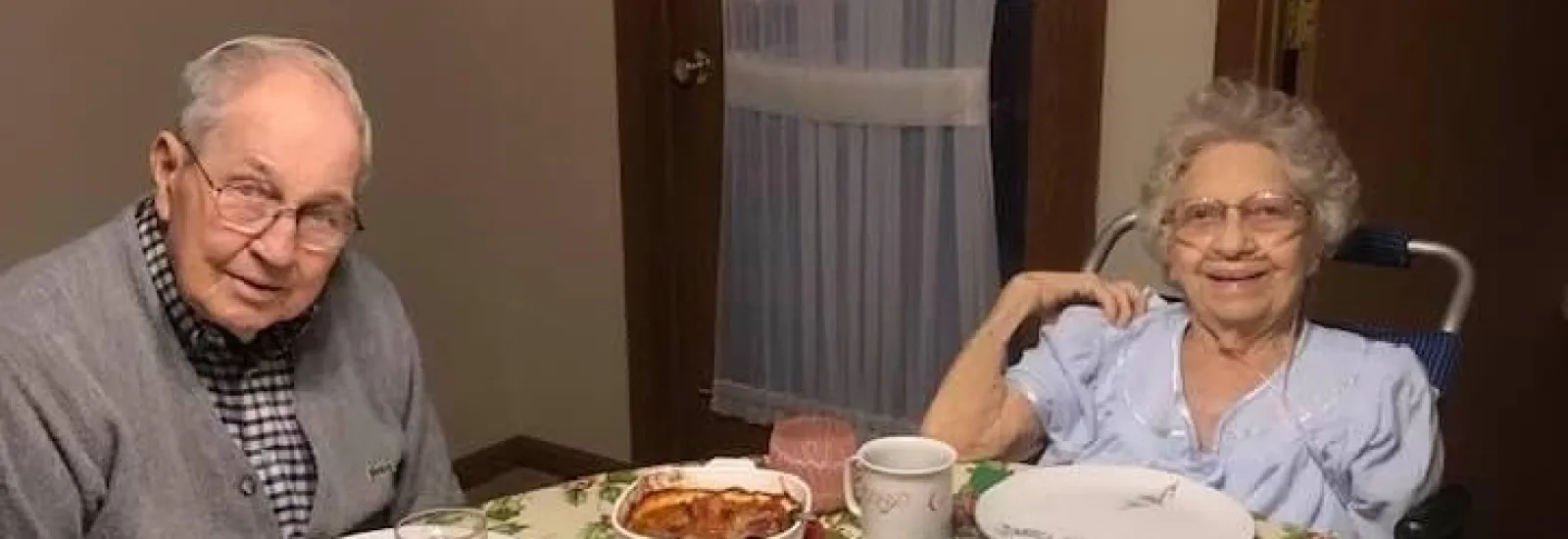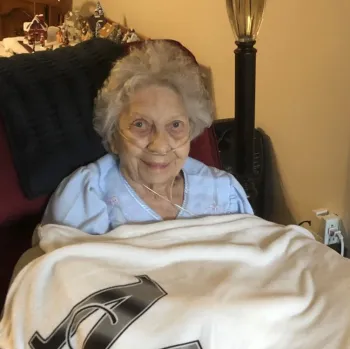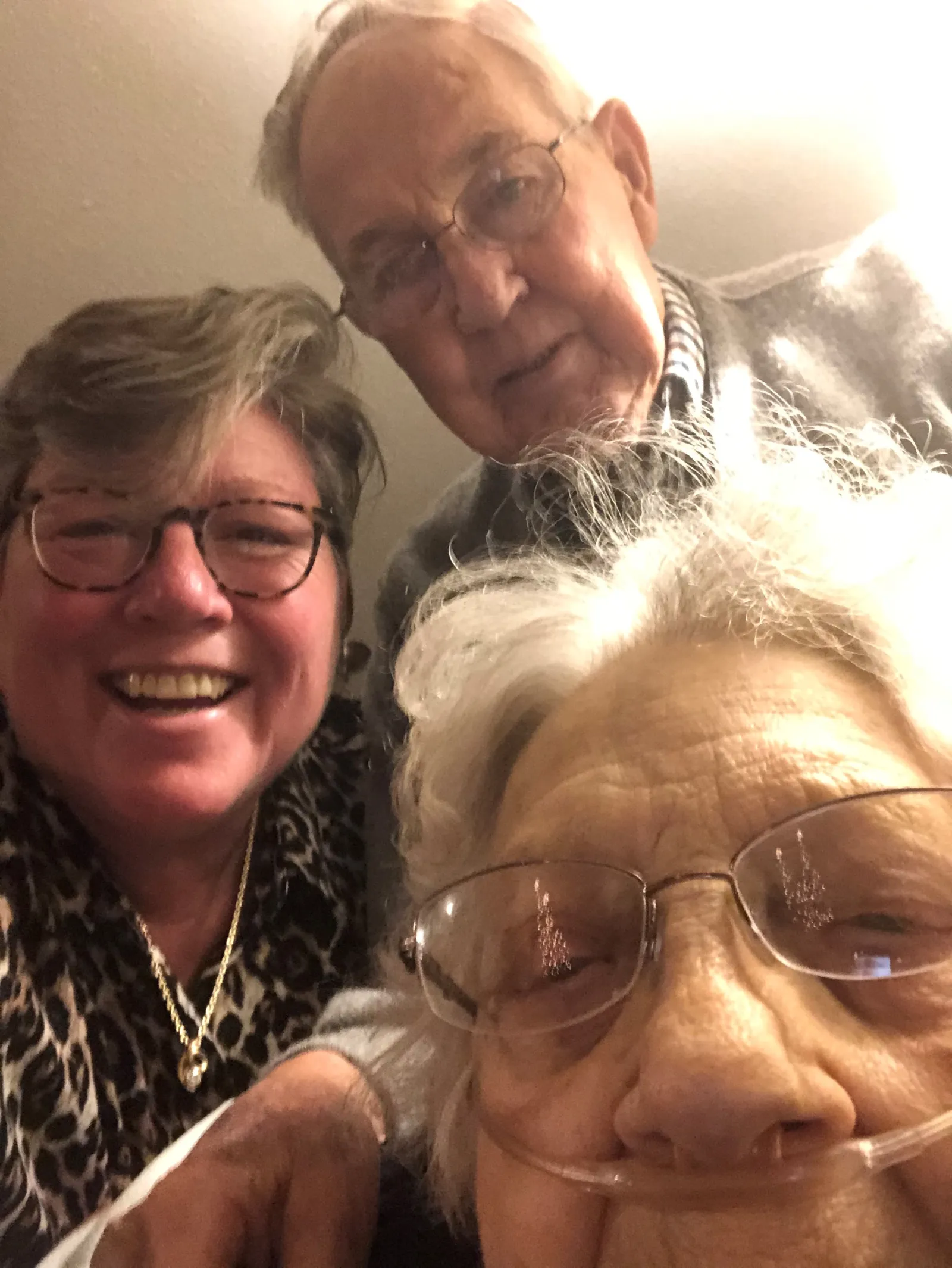
‘Hospice isn’t about dying. It’s about living.’

Mable Bailey (above) joined the Reid Hospice program eight months after her terminal diagnosis following a heart attack. Her decision was made after health problems for her husband, Charlie (top left), continued to pile up.
It was
Christmas, and it was clear to Darla Bailey her mother's time was running out.
Mable Bailey
had been living with diastolic congestive heart failure for nearly two years,
but she loved the holiday.
"I think we all knew her goal was to hang on long enough to celebrate
with us," Darla said. "She
loved to decorate for Christmas. She couldn't do it anymore, but she could
certainly tell you what to do."
Christmas Day
2020 arrived on a Friday. By Monday, Mable was gone.
Helping Darla
through her mother's final days was a nurse from Reid Hospice.
"It was so meaningful to have her there. I can't tell you
what that has meant to me," Darla said. "She was a constant support. We weren't
just a client she was taking care of."
Mable joined the Reid Hospice program in October 2019, about
eight months after her terminal diagnosis following a heart attack. The
possibility of hospice care was discussed then, but it wasn't until health
problems for Mable's husband, Charlie, continued to pile up that the decision
to enter the program was made.
"We had a meeting about how to care for both of them, and
what made sense at the time was hospice for my mom," Darla said. "We knew what
the eventual outcome would be with her health, but we didn't know when."
Darla was as involved as she could be from her home in
Louisville, making trips home when possible to see and care for her parents.
Hospice staff was there for her whenever she needed help.
"I never felt there was a time when something I asked was a
stupid question. It didn't even have to be medical. There were times I was
overwhelmed with what needed to be done next," Darla said.
"Hospice equipped me to be able to make it through my
parents' illnesses. It was amazing to have that level of care available. You
don't have to sit here every week and figure out medications anymore. That's part
of what they do."
At first, Mable was none too happy about having a stranger
in her house, but over time, both she and Charlie warmed up to the nurse's regular
visits.
"We had to explain to her we were helping her live through
this, that she had congestive heart failure and it wasn't going to get better,"
Darla said.

"The nurse was fantastic. She would talk about flowers and
gardening with my mom, and that would make her happy. The visits became welcome
to my parents. They didn't have to go to the doctor's office anymore.
"It was wonderful having hospice bring Mom's prescriptions
for her. I couldn't have Dad running to pick them up every time there was a
refill or new one."
Darla is grateful for everything Reid Hospice was able to do
for her mother and for being there for Darla as well.
"Why I love Reid's hospice program is the consistency and
continuity of their care and their nursing staff," she said. "If your goal is
to remain in your home, hospice care is the best asset you can have. That was
Mom and Dad's goal."
When Darla talks about hospice care with others, she has an
important message she wants to share.
"Hospice isn't about dying. It's about living," she said. "Hospice
can help them live to the fullest in the time they have left."
Anyone who has questions about hospice care in general or how Reid Hospice staff can help them or a loved one can call (765) 983-3344 or visit the Reid Health website.

